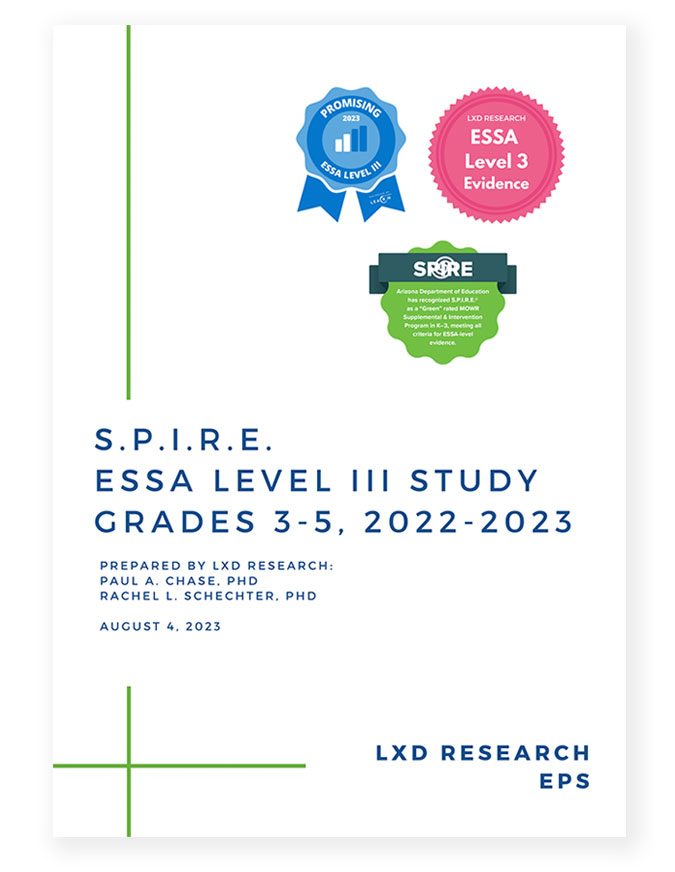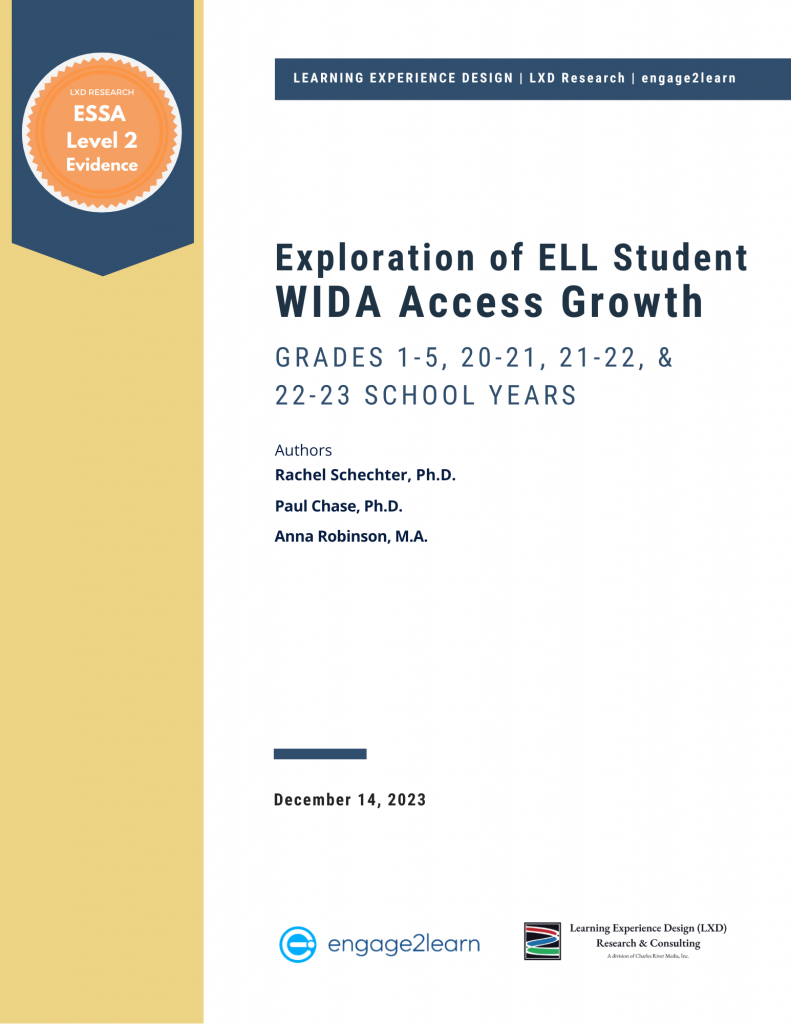The Credibility Booster
Looking back on learning with rigorous research methods
What are Look Back Efficacy Studies?
The “Look Back on Learning” or Look Back Efficacy Study is perfect for companies with strong success stories looking to meet the latest ESSA requirements. This study provides educational leaders with specific outcomes grounded in ESSA-aligned guidance, potentially meeting ESSA Level 2 (Moderate) or ESSA Level 3 (Promising) depending on the local, state, or national evaluator.
The “Look Back Efficacy Studies” contribute to education companies who are…
- Needing to meet the current ESSA Tier III and Tier II requirements using past efficacy studies.
- Looking to expand and differentiate by providing a variety of studies for different district needs and situations.
- Seeking to overcome a wider range of research requirements to gain more RFPs and sales opportunities.

Customer Impact: The Look Back Efficacy Study
- Grow purposefully and effectively with an archive of efficacy studies for different requirements and situations.
- Become visible and searchable on reputable sites, including ERIC and Evidence for ESSA.
- Gain a noticeable ROI (Return on Investment) due to heightened credibility.

Look Back Efficacy Studies
Look Back Studies can also assist education companies in building a mixed archive or library of research, vital for strengthening your evidence muscle in the education landscape. Integrating Look Back Studies into your research strategy allows you to widen market share opportunities as each study serves as a mirror for various types of districts and students’ needs. Having a variety of Look Back Studies will enable you to mirror examples and tell impact stories for various district needs and requirements.
When companies incorporate these studies into their research plan, they notice a greater receptivity due to this added layer of supportive evidence on student outcomes—with the research expertise to assist with market knowledge for navigating current market trends.
The deliverables for this study may include:
- MOU/DSA materials to establish agreements between the school, company, and researcher on what is to happen and when.
- Educator Surveys bring in the teachers’ (and students’) voices into the study. Their feedback and insights bring context to the storytelling and additional data points for decision-making for product development.
- Admin/School Leader Interviews contribute toward understanding the big picture of what is happening at the district and school building and the factors impacting educator implementation and student outcomes.
- Data Analysis includes the analysis of district-administered pre and post-measures in order to show the growth or impact in a quantitative way, using the metrics and visualizations that leaders expect.
- Academic Report provides the language, logic models and credibility for the critical lens to gain trust and buy-in.
- Research Summary this educator-friendly, co-branded, executive summary can stand on its own in addition to start the academic report.
“LXD Research helps us see that the big picture is the number of studies and the levels of those studies to ensure we have a cross-section of varying studies. So that when we’re searched on ERIC or Evidence for ESSA, we have a robust profile of studies.”
– Dr. Amy Boza, 95 Percent Group

Many different study designs and methods can be used for Look Back Studies. Many are eligible for validation by LearnPlatform, some may be eligible for Evidence for ESSA (Promising), and all could be submitted to conferences. These examples provide three examples of Level 2 and Level 3 studies.

Review the study on S.P.I.R.E by EPS Learning that was approved by the Arizona Department of Education and validated as ESSA Level 3 by LearnPlatform.

Review the study on Growelab by engage2learn that provided the team with a rigorous, multi-year study on MLL students and educators.

Review the study summary on Classtime’s impact on math achievement on the CAASPP assessment that was also presented and published at the EdMedia + Innovation conference in Brussels, Belgium, in the summer of 2024.
“Our LXD Research Look Back Studies have led us to additional partnerships due to seeing this data and the impact that educator support is having on teacher retention, and student growth.”
Kammi Green, engage2learn
